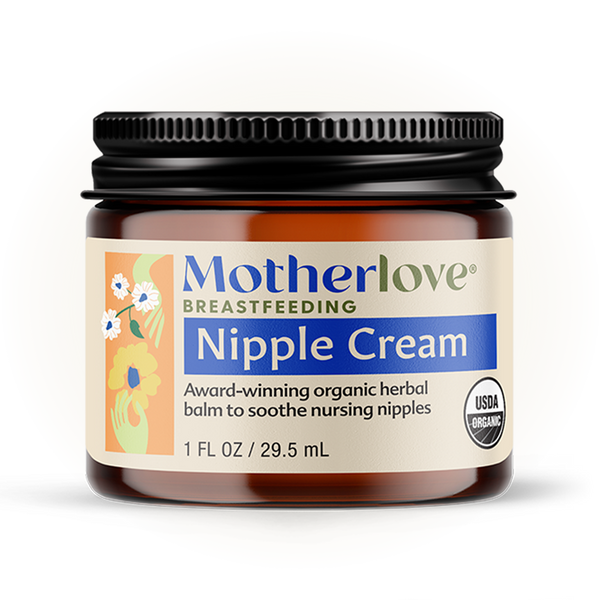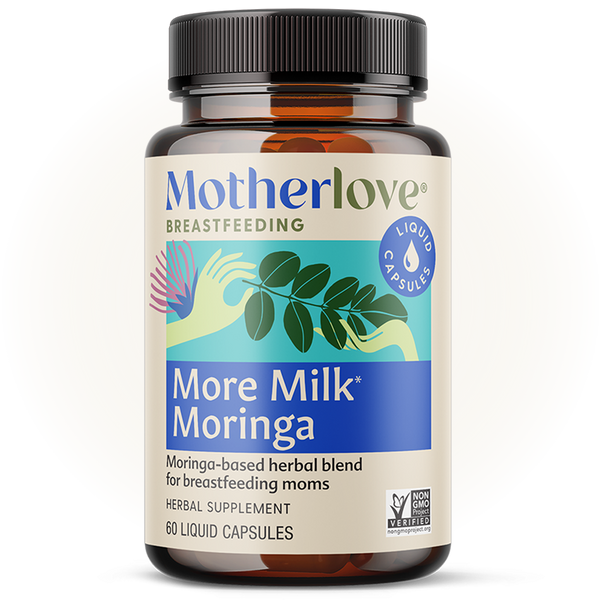Written by: Wendy.
If you think about it, the way the body works to make breastfeeding happen is nothing short of miraculous. During pregnancy and postpartum, we transform from regular humans to milk-making extraordinaires—and we continue to be able to produce milk for as long we breastfeed our kiddos.
Several elements are at play to make this happen, but the main drivers behind the establishment and maintenance of breastfeeding are hormones. Prolactin and oxytocin are the chief hormones involved in breastfeeding, but a few others come into play as well. Let’s take a look at the hormones involved in breastfeeding … from pregnancy, to postpartum, to weaning.
PREGNANCY
During early pregnancy, you probably noticed that your breasts became heavy, sore, and a cup size or two bigger. You may also have noticed that your areolas darkened and that the veins on your breasts became more prominent. All of these changes were the first steps in turning your breasts into milk-making factories, and all of these changes were driven by hormones.
For example, the hormone prolactin stimulates the milk-making tissue (glandular tissue) in your breast to grow. Estrogen, progesterone, and human growth hormone are also key players when it comes to breast growth and breast tissue maturation during pregnancy. Toward the end of your second trimester, your body starts to produce small amounts of colostrum, the first milk your baby will receive before your more copious, mature milk comes in.
Hormones ensure that your breasts don’t start overflowing with milk until your baby is born. Progesterone and estrogen, the main hormones of pregnancy, block milk secretion until your baby arrives. After birth, the sudden drop in these two hormones makes it possible for your milk to “come in,” or become more abundant.
DURING THE EARLY DAYS OF BREASTFEEDING
In the first few days after birth, your baby will receive colostrum, a yellowish/orange milk that is full of healthy nutrition and disease-fighting antibodies. But as estrogen and progesterone levels drop, your body will get the message that it’s time to rev up the milk-making. By 3-5 days postpartum, you will start to begin the process of producing mature milk for your baby.
As you establish breastfeeding and your milk supply, the hormone prolactin will be an important player. Every time your baby suckles, more prolactin is produced, which tells your body to continue to make milk. The hormone oxytocin also has an important role here. Oxytocin is responsible for your milk letting down. When your baby suckles, oxytocin is released, which makes the muscles around the milk ducts contract, allowing the milk to flow.
Oxytocin has a few other important jobs in those first few days postpartum. It causes your uterus to contract back to its normal size and can help decrease postpartum bleeding. Oxytocin is also known as the “love hormone” and its release can fill you with feelings of happiness and peace, which can help you bond with your baby.
DURING ACTIVE BREASTFEEDING
Once your milk supply is established, hormones help you maintain it. Each time you breastfeed your baby, your prolactin blood levels increase. This tells your body to continue to make milk, and helps establish a robust milk supply. Your prolactin levels peak about 30 minutes after a feeding.
Oxytocin is released faster and more frequently. At the beginning of a feed, your milk comes out slowly, in response to your baby’s suckling. But your baby’s suckling stimulates the release of oxytocin, which causes your milk to flow much faster (i.e., letdown). You may have several oxytocin releases, or letdowns, during a feeding.
You may also have oxytocin releases when you are not nursing. For example, if your baby cries in the other room, you might get a hit of oxytocin, which causes your milk to let down. Or, if you are separated from your baby and start to think of them, you might let down. Oxytocin is responsible for those milk-stained shirts that plague so many breastfeeding parents.
DURING WEANING
At the end of breastfeeding, as you drop nursing sessions, your hormonal make-up will change. You will start to produce less prolactin and oxytocin as you get closer to weaning. Once weaning happens, these hormones will drop significantly. Not only that, but if you haven’t had a menstrual period yet, the hormones responsible for menstruation, such as estrogen and progesterone will start to increase. You’ll start to experience fun things like PMS, too.
All of these hormonal changes can be difficult for some people, especially if weaning happened suddenly. Some people find that the hormonal changes linked to weaning can cause feelings of depression. These feelings usually get better as your body adjusts to the hormonal changes, but never hesitate to reach out to help if you are feeling especially challenged by these changes.
WHERE TO GO FROM HERE
Hormones play an active role when it comes to breastfeeding your baby. For most people, the orchestration of breastfeeding works well, and they are able to produce a full supply of milk for their babies. Sometimes, though, breastfeeding doesn’t go as planned, and sometimes hormonal imbalances are part of the issue. If you are having a breastfeeding challenge and wondering if your hormones may be playing a role, please get in touch with a board certified lactation consultant (IBCLC) or a breastfeeding medicine physician.






